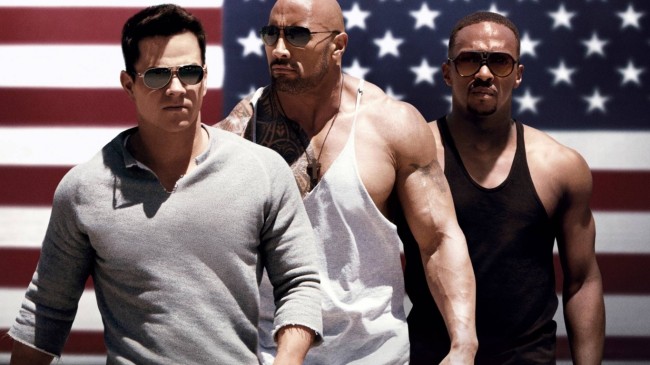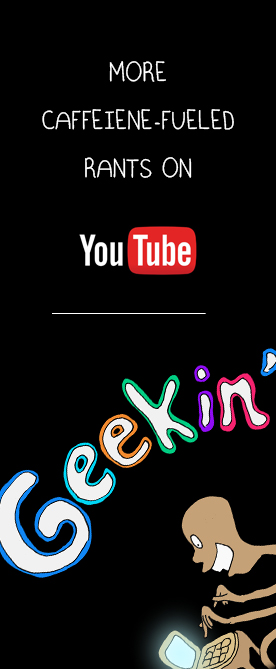Pain & Gain
dir. by Michael Bay
Whether or not you like Michael Bay’s latest film Pain & Gain depends entirely on your level of endearment for watching a dog drag its ass across a carpet. It’s a shaggy mutt, with its tongue slack and hanging over the side of its mouth, grinding all the grime out of its rear, heaving and panting with full abandon. A shameless dog. But provocative, too. Pain & Gain hits you with all the bombast you’ve come to expect from a Michael Bay film—swooping shots of slick beachside mansions, extreme low angles of pencil-thin Barbie Dolls and beefcake meatheads, spurts of unnecessary scatalogical humor—but it’s all done with a tinier scope and more heart than we’re accustomed to.
Daniel Lugo (Mark Whalberg) and his fellow body-building musketeers, Paul (Dwayne Johnson) and Adrian (Anthony Mackie), think it’s high time their lifestyles reflect more accurately their bodies: big, flashy, and full of empty, steroid-induced pomp. Jealous of gym member Viktor Kershaw’s delicatessen-provided wealth, Lugo and his crew target the weasel Kershaw (Tony Shaloub) for a kidnap. From start to finish, the three lunkheads bollix their way through the criminal proceedings—the kidnap, the torture, the execution—like a bunch of ill-advised fuck-ups out of a Coen Brothers’ movie about idiot odysseys; a laRaising Arizona or O Brother, Where Art Thou? Lugo’s been told that America’s the land that knows no limits—a land of doers, not “don’t-ers”—where you can pump and curl and lift till your life is as grand and lavish as you want—where all that fame, all that respect, is a cash-grab away. Despite Lugo’s inherent capacity for patience and discipline—given the marathon of time he must have sacrificed to achieve such unreal shape—he’s tragically incapable of applying the same system to his own financial success. Lugo prefers his extravagant lifestyle free and easy, and without consequence.
This may be the first time—other than the needlessly maligned Bad Boys II—that Michael Bay has picked a script suitable to his peculiar brand of aesthetics. The movie’s visual arsenal shocks and awes as a reflection of its characters’ own collective desire to rock us into submission with their aspiration for physical perfection. They think the bigger you are, the better, the sexier, the more untouchable and god-like you are. And what’s more untouchable and god-like than the pyrotechnic fluff of a studio-produced flick with obnoxiously high production value? The film’s crammed full with unnecessary spectacle—errant explosions, speed boats, Porsches, fake tits, and silly slow-motion captures of SWAT men hopping splay-legged out of an armored car—but unlike Bay’s Transformers and Bad Boys series, Pain & Gain’s unabashed display of peacock machismo functions with fist-pumping rhyme and reason. There’s a syncopated harmony between subject and theme: a pure anomaly as far as Bay films are concerned.
For the first time in a long time—and possibly ever—I don’t feel so ashamed for enjoying a Michael Bay movie. There’s no need to sulk and relegate yourself to the shadows for this one, this ain’t your daddy’s guilty pleasure flick. You can shout it out loud and with aplomb: Pain & Gain is good; it’s solid.
Now, if only Bay could manage to temper down some of his more grating foibles—especially his excessive predilection for frat boy humor—I’m pretty sure there’s an idiot savant satirist pussyfooting around in there somewhere who could do great damage to the beefed-up, ’roided-out, all-delusional image America holds up of itself.







